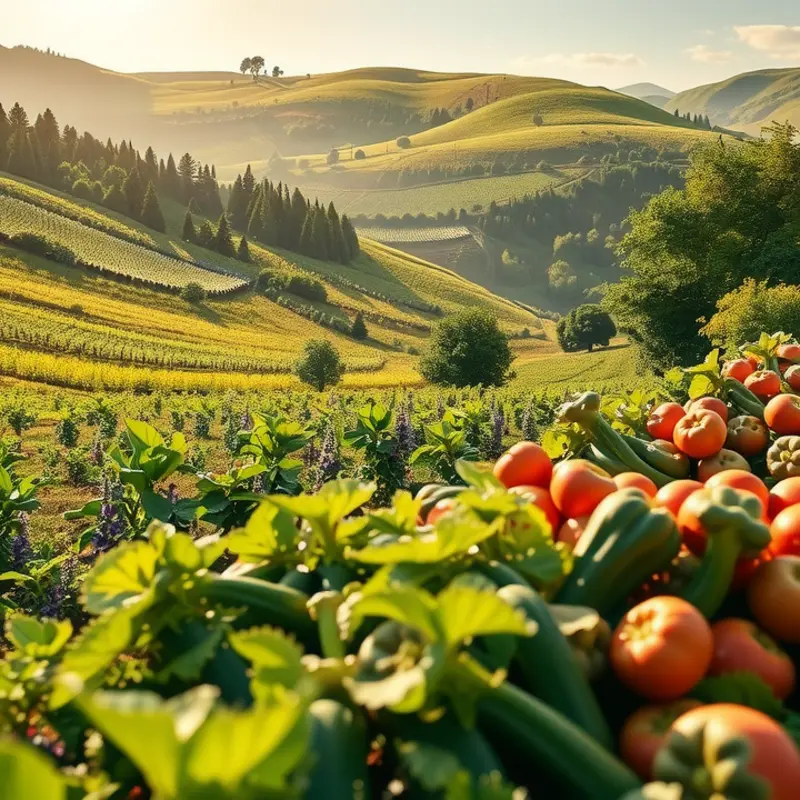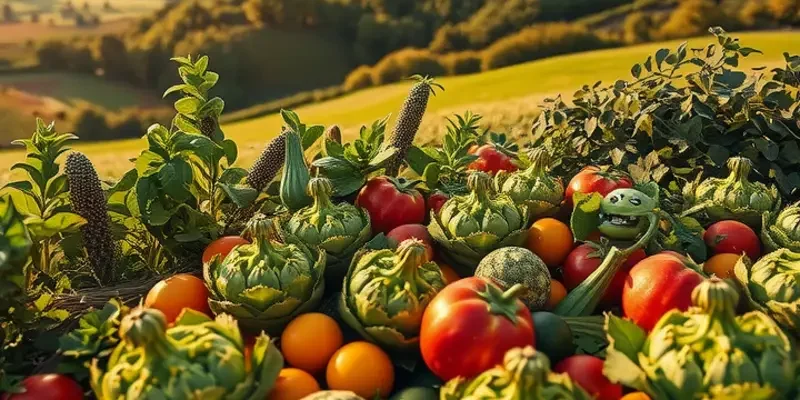Every bite we take can either contribute to or combat habitat loss. As environmentally-conscious individuals, making informed food choices can significantly minimize our ecological footprint. From choosing local produce to embracing plant-based diets, it is possible to nourish ourselves while protecting the rich biodiversity that sustains our planet. This article explores practical steps we can incorporate into our daily lives to not only enjoy our meals but also be stewards of the Earth.
Plant Power: The Impact of Plant-Based Eating

Embracing a predominantly plant-based diet is a simple yet powerful step toward sustainability. When we choose to fill our plates with fruits, vegetables, grains, and legumes, we not only boost our health but also contribute significantly to preserving the environment. One of the major ecological benefits of this dietary shift is the reduction of habitat destruction caused by livestock farming.
Livestock farming is a leading driver of deforestation and land-use change. Vast tracts of forests are cleared to make way for cattle pastures or to grow feed crops. This deforestation results in the loss of biodiversity and disruption of the natural carbon cycle. By opting for plant-based foods, we can shrink our ecological footprint. Producing plant-based foods requires considerably less land and water than animal products, thereby preserving vital natural habitats.
To integrate more plant-based options into your diet, start with familiar dishes. Swap the beef in your chili for a variety of beans, or replace chicken in your stir-fry with tofu or tempeh. Seasonal vegetables are not only fresh and nutritious but also more sustainable. In autumn, hearty staples like squash and sweet potatoes shine. In spring, asparagus and peas bring fresh flavors to the table.
Opting for locally sourced and organic produce can further lessen environmental impact while supporting local ecosystems. Locally grown foods reduce carbon emissions linked to transportation, and organic farming practices enhance soil health and biodiversity.
Let’s explore some practical meal ideas:
- Breakfast: Try a vegetable-packed smoothie with spinach, bananas, and seasonal berries. Add a spoonful of almond butter for protein and flavor.
- Lunch: Whip up a fresh salad with kale, roasted chickpeas, and sliced avocado. Top it with a lemon-tahini dressing for a creamy, satisfying meal.
- Dinner: Prepare a quinoa-stuffed bell pepper with black beans, corn, and chopped tomatoes. Bake until the peppers are tender for a delightful and fulfilling dish.
For more tips on incorporating plant-based meals with ease, you can check out easy strategies for plant-based eating.
By focusing on plant power, we not only foster our own well-being but also become stewards of the planet. Each meal is an opportunity to tread lightly on the Earth, safeguarding habitats and nurturing a more sustainable future.
Supporting Local: The Benefits of Local Sourcing

Purchasing locally sourced foods plays a crucial role in preserving habitats and fostering sustainable agriculture. This practice not only curtails the environmental footprint associated with the global transportation of food but also supports agricultural methods that prioritize ecosystem health. Local farmers are often more in tune with the nuances of their land, leading many to adopt sustainable methods that minimize habitat disturbance and enhance soil vitality. By choosing local foods, consumers directly contribute to the economic and ecological resilience of their regions.
One significant advantage of local sourcing is the promotion of seasonal eating. Consuming produce that is in season allows farmers to grow crops that align with the natural cycles of their environment. This reduces the need for artificial inputs like fertilizers and pesticides, which can negatively affect surrounding habitats. Seasonal eating also diminishes the energy demands of agriculture, aligning closely with sustainable practices. Fresher produce, which retains more nutrients and flavor, is another benefit that encourages more community members to engage in sustainable food choices.
Building a closer relationship with local food systems offers a direct connection to one’s environment and promotes community building. Farmers’ markets provide an avenue where consumers can meet and support those who grow their food. These markets often feature organic and heirloom varieties, which are cultivated without harming local biodiversity. Another method of fostering such connections is joining a community-supported agriculture (CSA) program. In a CSA, members purchase shares of a farm’s harvest in advance, providing farmers with capital early in the season while ensuring a supply of fresh produce through harvest months.
These local initiatives not only promote ecological stewardship but also contribute to culinary diversity within communities. Engaging with local farmers and markets encourages a shift in dietary habits towards more environmentally conscious choices. For individuals looking to integrate these practices, eco-smart kitchen storage can further minimize waste, extending the life of fresh produce and maintaining its quality. Together, these efforts build resilience against fluctuations in global supply chains and support local economies.
Local sourcing doesn’t just benefit the environment; it also enriches cultural and social connections. The synergy between sustainable farming practices and community engagement ensures that habitats are protected while promoting healthful, meaningful eating experiences. By championing local foods, consumers play an active role in safeguarding ecosystems and nurturing sustainable agricultural traditions.
Final words
The choices we make about food can directly impact the health of our planet. By embracing a plant-based diet and supporting local farms, we can significantly reduce habitat loss while nourishing our bodies. Each small step you take, such as dining seasonally or choosing organic products, plays a key role in conserving natural ecosystems. Remember, every meal is an opportunity to make a positive change. Every bite matters—let’s make them count for a sustainable future!








